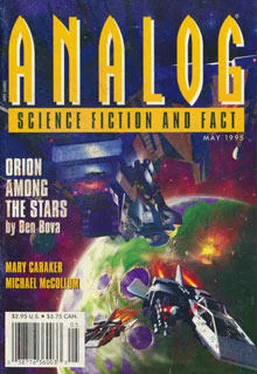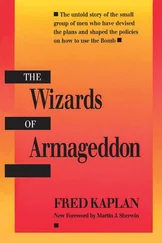Christopher McKitterick - Paving the Road to Armageddon
Здесь есть возможность читать онлайн «Christopher McKitterick - Paving the Road to Armageddon» весь текст электронной книги совершенно бесплатно (целиком полную версию без сокращений). В некоторых случаях можно слушать аудио, скачать через торрент в формате fb2 и присутствует краткое содержание. Год выпуска: 1995, Издательство: Dell Magazines, Жанр: Фантастика и фэнтези, на английском языке. Описание произведения, (предисловие) а так же отзывы посетителей доступны на портале библиотеки ЛибКат.
- Название:Paving the Road to Armageddon
- Автор:
- Издательство:Dell Magazines
- Жанр:
- Год:1995
- ISBN:нет данных
- Рейтинг книги:3 / 5. Голосов: 1
-
Избранное:Добавить в избранное
- Отзывы:
-
Ваша оценка:
- 60
- 1
- 2
- 3
- 4
- 5
Paving the Road to Armageddon: краткое содержание, описание и аннотация
Предлагаем к чтению аннотацию, описание, краткое содержание или предисловие (зависит от того, что написал сам автор книги «Paving the Road to Armageddon»). Если вы не нашли необходимую информацию о книге — напишите в комментариях, мы постараемся отыскать её.
Paving the Road to Armageddon — читать онлайн бесплатно полную книгу (весь текст) целиком
Ниже представлен текст книги, разбитый по страницам. Система сохранения места последней прочитанной страницы, позволяет с удобством читать онлайн бесплатно книгу «Paving the Road to Armageddon», без необходимости каждый раз заново искать на чём Вы остановились. Поставьте закладку, и сможете в любой момент перейти на страницу, на которой закончили чтение.
Интервал:
Закладка:
“Verdammt!” von Braun barked. “Air raid.” He turned a shadowy face to Goddard. “We had best get below-decks.”
“Air raid?” Goddard mumbled. “Here? Who’s attacking?”
“Look there,” the Greek answered. “See the streak of fire? The Brits, in an American Bellthunder. They don’t waste bombs on us. We can stay abovedecks.”
Goddard tried to identify the rocket-plane’s dull heat signature rising from the south amid a clutter of light. There. My baby. It was barely more than an experimental craft, powered by a pair of Curtiss-Wright throttleable rocket engines. But the English had ordered as many as America could ship to British West Afrika. So far, Goddard knew, four had been sent; one was lost when its transport ship was sunk by a U-boat.
The planes carried barely enough fuel to launch on a ballistic trajectory from Afrika across Europareich and land on English soil, there to refuel and fly back—much faster than any Luftwaffe plane, even the Me262 or Himmelwolfe, which were limited to denser air that fed their jets. No Bellthunder had been shot down, even though maneuverable only upon reentering the troposphere. One had been destroyed on the ground at takeoff. Since the plane could barely carry a thousand pounds of bombs, such runs had been designed more to unnerve the Reich than to do any real damage.
Until they began carrying American atomic bombs.
Vengeance for the Vengeance bombs.
Its successor should some day carry men and experiments into space, but instead it was reducing places such as Hamburg and Rome to cinders. Five had fallen, two on cities and three on major military targets; in one case, most of an entire Panzer Division had been melted into slag. Goddard’s vision seemed to shift. No longer did the craft look like his baby. Rather, Frankenstein’s monster. Its progeny would not be spacecraft.
The coastline to the left lit up with anti-aircraft fire, scratching open the black night with white claws.
Fools, wasting shells, Goddard thought. Then a flurry of jets took off under that canopy of horizon-to-horizon fire, and he realized the AAs were merely being used to ward off low-flying escorts or air-to-air missiles launched from the Bellthunder.
“So, now I rise to join in fisticuffs with you,” von Braun said. “These Italian 262s and Himmelwolfe carry nothing but radar-guided missiles. My design team was ordered to create a defensive weapon to stop your lovely Brits from destroying the Fatherland. Most of the missiles are for distraction. However, some are tipped with miniature atomic bombs that use transuranic elements with special compressors and neutron reflectors that allow critical mass to be very low. Still, they yield more than half a kiloton. Europareich Wehrmacht has been working very diligently. This will be a splendidly wicked show.”
Goddard watched ten, maybe twenty, jets climb atop spears of inefficient orange light, while the Himmelwolfs’s less wasteful exhaust was already pulling well ahead of the Me262s’. He shuddered. He had no idea the cease-fire had been so close to… this.
Bub-bub-bub-bub-bub , the boat echoed. The AA guns boomed. The jets’ roar shredded the sky once they had already passed overhead, and Goddard had to cover his ears beneath the din.
The roar subsided. The AA guns tired of their chattering. Time passed, and the battle began to seem more of an exercise. Then the jets appeared to triple their number as each launched a pair of white streaks. It was as if the grandest meteor shower ever had reversed itself and ricocheted skyward.
The streaks gradually pulled away from the jets, then faster and faster, seeking the dull glow of the Bellthunder. The night grew still again, except for a distant rumbling.
Flowers blossomed in the sky. No, great red giant suns; one, two, three, four suns, and Earth became a planet orbiting crazily through a globular cluster. It was brighter than full day in New Mexico. The conventional warheads’ explosions were lost in the glare. Goddard stared blankly; he had never seen an atomic blast.
“Don’t look!” von Braun cried, throwing his arms around Goddard’s shoulders and pulling him down. The night grew warm. Many seconds later, such explosions as Goddard had never imagined shoved him and von Braun to the deck. Goddard’s stomach twisted as it once had, before the surgery. His head pounded. The atom drums ended their pounding, although the last note seemed to be jammed on like a scratched record without a skip.
“Fools!” he yelled, struggling out from beneath von Braun’s mass. “Damned fools, stupid damned fools! Don’t your Luftwaffe friends know what all that radioactive fallout will do to the people downwind?”
“They have an idea,” von Braun said tiredly, rolling to one side, sitting up. He began rubbing his temples. “But those were tiny bombs. And southwest of here is not the Fatherland,” he added, his voice trailing off. He began to shake.
Goddard had the urge to punch this man—no, to shoot him with his Luger. Then shoot myself. That was my damned rocketplane they were after. He glanced up, searching for the Bellthunder. Even if it had survived the attack—unlikely—he couldn’t have seen it amid the atmospheric fireworks, the gathering clouds like pillows of electricity.
“Mein Gott!” von Braun shouted at the sky in a sudden outburst. His big chest trembled with restrained emotion. “We… no, Europareich was only defending itself. The Brits have destroyed the cease-fire and driven Europareich to this. ”
Goddard watched his old friend closely for a while as the thunder tapered off and the sky darkened. Turning away at last from von Braun, he stared at the freak lightning. He recognized that his determination to end the war and replace it with their grand struggle had just been forged in fire. Any traces of naivete that had lingered within him were scorched away, leaving his desire naked within cascading ashes, hard like a diamond.
“If you are not the noble man I hope you are,” Goddard said, “I promise to kill you without hesitation. Followed shortly by myself. Otherwise, we’d better hurry to our destination.”
They landed at a high Izmir dock, noon the following day. A tall woman with scarves across her face directed “Luftkanal” and “Schwartz” to a car, which trailed sooty smoke as it zoomed them through town to the train station, where they ate spicy local food with the silent woman. The armored grey snake departed in the early afternoon, carrying them into the mountains. From cliffsides, Goddard was granted breathtaking vistas of valleys and villages as the train wound through the range. A magnificent sunset began to fall just as they pulled into Ankara. Well into the night, at Sivas, the rails had reached their end.
Goddard and von Braun disembarked with hundreds of other passengers, mostly Europareich soldiers. With slanting white rays, the waxing crescent Moon lit a great panoply of Panzers, self-propelled guns, and artillery spread across a landscape denuded of vegetation. The barrels of the guns pointed west and north and south, but they were silent.
A gaunt Turkish soldier dressed in Europareich grey approached von Braun.
“Herr Schwartz?” the soldier asked. Goddard’s guts knotted. He coughed twice, painfully.
“Ja,” von Braun answered. “Und Herr Luftkanal.” The soldier handed them both a thick parka.
“Kommen Sie mit!” he said in a harsh whisper, glancing about nervously as he turned his back and began to lead the scientists.
Immediately, images of Turkish prison camps sprang to Goddard’s mind, and he wondered what an ill old man was trying to accomplish in the black of night, surrounded by enough enemy firepower to destroy an army. The guilty, choking sensation of being a spy clung in his throat, making it impossible to take a full breath. Encompassed by the enemy, being led by one of their soldiers, he found it difficult to envision a purpose in this madness.
Читать дальшеИнтервал:
Закладка:
Похожие книги на «Paving the Road to Armageddon»
Представляем Вашему вниманию похожие книги на «Paving the Road to Armageddon» списком для выбора. Мы отобрали схожую по названию и смыслу литературу в надежде предоставить читателям больше вариантов отыскать новые, интересные, ещё непрочитанные произведения.
Обсуждение, отзывы о книге «Paving the Road to Armageddon» и просто собственные мнения читателей. Оставьте ваши комментарии, напишите, что Вы думаете о произведении, его смысле или главных героях. Укажите что конкретно понравилось, а что нет, и почему Вы так считаете.












